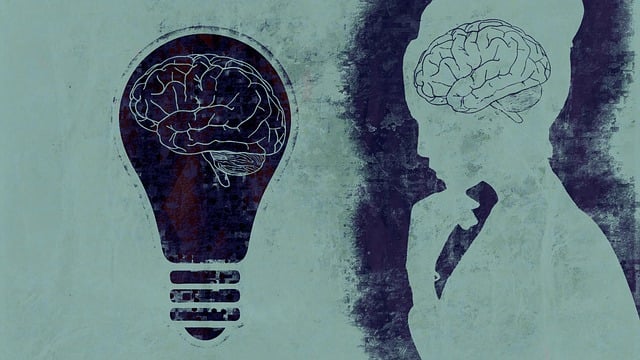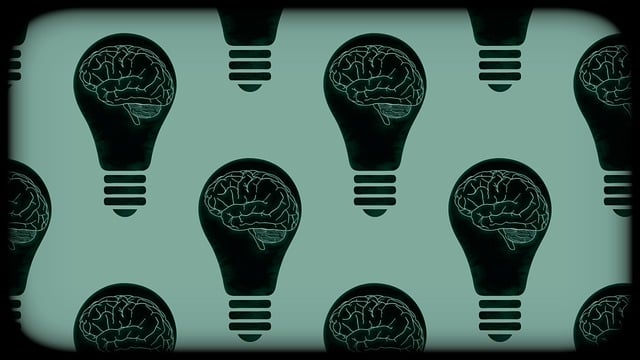Mental wellness is a holistic approach that includes emotional, psychological, and social well-being, becoming increasingly vital in today's stressful world. Longmont spiritual-religious issues therapy utilizes journaling as an effective tool to enhance mental health. By creating a dedicated space and organizing the journal with specific sections, individuals can explore their thoughts and feelings openly. Writing honestly without judgment encourages self-awareness and facilitates emotional expression. Journaling techniques such as gratitude practices, free writing, and mindfulness exercises help identify recurring thought patterns, improve emotional intelligence, and transform mental health outcomes. Regular reflection allows for tracking mood changes, assessing coping mechanisms, and addressing challenges, providing valuable insights for personalized Longmont spiritual-religious issues therapy.
“Unwind your mind and embark on a journey of self-discovery with mental wellness journaling, a powerful tool for navigating life’s challenges. In today’s fast-paced world, prioritizing mental health is paramount. This comprehensive guide explores how Longmont Spiritual-Religious Issues Therapy can enhance your well-being through journaling. From understanding the benefits to setting up a dedicated space and employing effective techniques, we’ll show you how to harness the power of self-reflection. Track your progress, celebrate victories, and unlock a calmer, more resilient you.”
- Understanding Mental Wellness and its Journaling Benefits
- Setting Up Your Journal for Longmont Spiritual-Religious Issues Therapy
- Effective Journaling Techniques to Enhance Mental Health
- Incorporating Self-Reflection and Mindfulness in Your Practice
- Tracking Progress and Celebrating Small Wins
Understanding Mental Wellness and its Journaling Benefits

Mental wellness is a holistic concept encompassing our emotional, psychological, and social well-being. It’s about recognizing and managing our thoughts, emotions, and behaviors to lead fulfilling lives. In today’s fast-paced world, where stress and anxiety are prevalent, prioritizing mental wellness has become more crucial than ever. Longmont spiritual-religious issues therapy often serves as a powerful tool to navigate these challenges.
Journaling is an effective way to promote mental wellness. By setting aside dedicated time to reflect and write, individuals can gain insights into their thoughts, feelings, and behaviors. This practice fosters self-awareness, which is essential for managing stress, preventing depression, and cultivating mindfulness meditation skills. Moreover, expressing oneself through journaling can provide a sense of clarity, help process complex emotions, and serve as a creative outlet—all contributing to improved mental wellness.
Setting Up Your Journal for Longmont Spiritual-Religious Issues Therapy

Setting up your journal for Longmont Spiritual-Religious Issues Therapy involves creating a sacred space where you can explore and express your thoughts and feelings openly. Start by choosing a quiet, comfortable place to write, free from distractions. Your journal should be a personal sanctuary, a tool to support your mental health awareness and emotional regulation journey. Consider using specific sections for different aspects of your therapy, such as tracking moods, identifying triggers, and noting spiritual insights or revelations.
Incorporate prompts that resonate with you to encourage reflection and introspection. For instance, “What spiritual beliefs bring me comfort in challenging times?” or “How can I incorporate religious practices into my daily routine for depression prevention?”. By dedicating time to this practice, you’re taking proactive steps towards managing your mental wellness. Remember, the journal is a private space; write honestly, allowing yourself to explore and confront any issues without fear of judgment, fostering a safe haven for emotional expression.
Effective Journaling Techniques to Enhance Mental Health

Journaling is a powerful tool for enhancing mental wellness, offering individuals an opportunity to reflect, process emotions, and gain insights into their thoughts and behaviors. Effective journaling techniques can help Longmont residents seeking spiritual-religious issues therapy or trauma support services improve emotional intelligence and boost confidence. One such technique involves writing freely and without judgment, allowing the mind to explore uninhibitedly. This practice encourages self-awareness and can help individuals identify recurring patterns in their thought processes.
Another useful method is incorporating prompts that stimulate introspection. For instance, questions like “What am I grateful for today?” or “What challenges did I face and how did I overcome them?” can guide reflections on personal growth, resilience, and positive experiences. Additionally, integrating gratitude practices into journaling has been shown to improve mood and reduce symptoms of anxiety and depression. Incorporating these techniques into a consistent journaling routine can be transformative, fostering better mental health outcomes and enhancing the overall well-being of individuals in Longmont.
Incorporating Self-Reflection and Mindfulness in Your Practice

Incorporating self-reflection and mindfulness into your mental wellness journaling practice can be a powerful tool for navigating Longmont spiritual-religious issues therapy. By taking time to introspect, you can gain profound insights into your thoughts, emotions, and behaviors, fostering a deeper understanding of yourself. This introspective process encourages you to become more aware of the connection between your experiences, beliefs, and feelings, enabling you to address any underlying challenges that may be contributing to issues like anxiety relief or stress management.
Mindfulness practices, such as focusing on your breath or scanning your body for tension, can help calm your mind and reduce symptoms associated with trauma support services. As you regularly engage in these reflective exercises, you’ll develop a stronger capacity for present-moment awareness, allowing you to better manage your responses to stressful situations. This enhanced self-awareness is key to effective stress management and can significantly improve your overall mental wellness journey.
Tracking Progress and Celebrating Small Wins

As you progress through your mental wellness journey, journaling becomes a powerful tool for tracking your development and celebrating small wins. Regularly reviewing your entries allows you to identify patterns in your thoughts and emotions, helping you gain valuable insights into what works best for managing stress and emotional regulation. Look for trends in your mood, the effectiveness of coping strategies, and any challenges that arise. This self-awareness is crucial for navigating Longmont spiritual-religious issues therapy and tailoring your approach to suit your unique needs.
By acknowledging and celebrating small victories along the way—whether it’s mastering a new mindfulness technique or successfully implementing a healthy habit—you reinforce positive behavior and build momentum. Journaling provides a safe space to recognize these achievements, no matter how minor they may seem. It allows you to reflect on your growth, fostering a sense of accomplishment that can motivate you to continue your mental wellness journey with renewed enthusiasm.
Mental wellness journaling is a powerful tool for personal growth, offering a safe space to explore thoughts and emotions. By incorporating self-reflection and mindfulness, individuals engaging in this practice can significantly enhance their mental health, as evidenced by the benefits of Longmont Spiritual-Religious Issues Therapy. Regular journaling allows one to track progress, celebrate small victories, and gain profound insights into their psychological landscape. This simple yet effective exercise encourages a more positive outlook and improved overall well-being.














